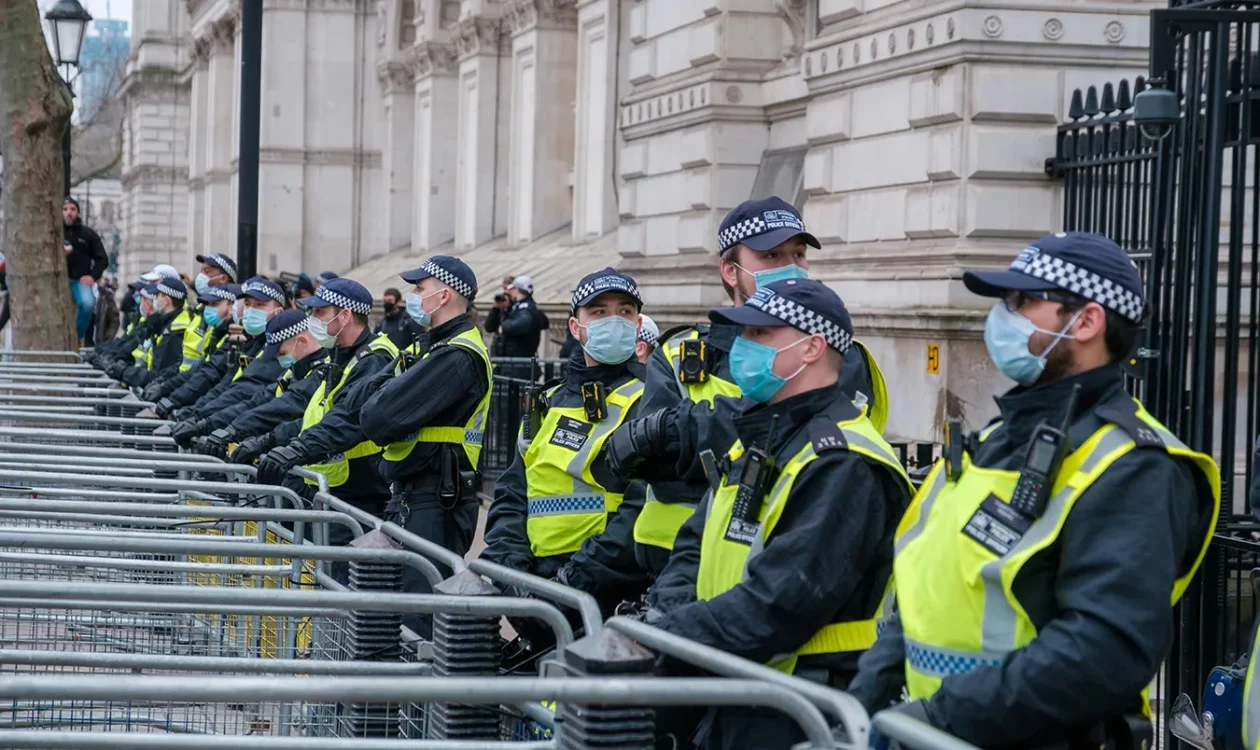ESL et Antidox sont heureux d’avoir convenu un partenariat avec The Ambassador Partnership, cabinet de conseil britannique réputé et composé d’anciens ambassadeurs spécialistes de la résolution de conflits et experts en risques politiques (www.ambassadorllp.com).
Labour leader Sir Keir Starmer has had an uncomfortable first fourteen months as UK Prime Minister. A surprise summer 2024 election found his team ill-prepared for government and lacking clear political direction. Early misjudgements over gifts of clothing and premiership football tickets laid Starmer open to charges of hypocrisy. Failed attempts at welfare reform and reversal of restrictions on eligibility for winter fuel payments created the impression of a Prime Minister hostage to the party’s left wing.
The recent loss of Starmer’s Deputy Prime Minister, Angela Rayner, after underpayment of taxes on a house purchase, and of his political appointee as Ambassador to the US, Lord Mandelson, following revelations about his past friendship with American child sex offender Jeffrey Epstein, have looked like more evidence of misjudgement at the heart of government. Perhaps most salient of all, record daily illegal immigrant arrivals on small boats from France have underlined the impression of a government in power but not in control.
Meanwhile stuttering economic growth, increasing joblessness (not helped by last autumn’s significant increase in employers’ ‘National Insurance’ taxes on employment), the highest inflation rate in the G7 and a pervasive sense that public services, particularly health, are not working as they should, have added to popular discontent.
As a result, Labour’s ratings have fallen from 33.7% of the vote in the July 2024 election, to some 22% in the latest opinion polls. The Government now faces a difficult annual Budget at the end of November, when Chancellor of the Exchequer Rachel Reeves will have to find £20billion (some estimates are much higher) of spending cuts, or more likely revenue increases, while meeting – in theory at least – Labour’s electoral pledge not to increase income taxes or VAT.
Against this background, speculation is growing that his opponents within the Labour Party may move to replace Starmer, whose personal approval ratings are at rock bottom, if Labour does badly (as looks likely) in next May’s devolved and local elections in Scotland, Wales and London. While Labour’s parliamentary majority, currently 399 out of a total of 650 parliamentary seats, may appear unassailable, many Labour MPs are sitting on narrow constituency majorities and would fear losing their seats at the next General Election, which is due by 2029, if the Government’s prospects have not improved by the spring.
If there is any consolation for the Prime Minister, it is that the official opposition Conservative Party and leader Kemi Badenoch are in a worse position. Having won 43.6% of the vote in the 2019 election that returned Boris Johnson to power (the Conservatives’ highest share since Margaret Thatcher’s first victory in 1979) the party achieved only 23.7% in last year’s election, winning just 121 seats – its worst electoral result since 1832. The Conservatives now stand at just 17% in the opinion polls and will confront an existential crisis if their ratings continue at this level as the next election approaches.
The main beneficiary of this political churn and economic malaise is the populist Reform Party, led by Nigel Farage, former leader of the UK Independence Party and a major figure in the campaign to leave the EU. He has positioned Reform as a plausible alternative for both Labour and Conservative voters, particularly in the ‘Red Wall’ seats of the Midlands and North, many of which switched from Labour to Conservative in 2019 and then back again in 2024. Having won 14.3% of the vote in last year’s general election, the party is now running at a remarkable 32% in the latest opinion polls.
But there are also opportunities for the centrist Liberal Democrats, who increased their parliamentary representation from 8 to a record 72 in 2024, largely through appealing to disillusioned pro-Europe, moderate Conservative voters in southern constituencies, as well as to the party’s traditional base in some of the more affluent London constituencies and the southwest. Significantly, the Liberal Democrats won the seats held in the recent past by four Conservative Prime Ministers – Boris Johnson (Henley), Theresa May (Maidenhead), John Major (St Neots) and David Cameron (Witney).
The Conservatives under Badenoch show little sign of trying to win back those who deserted them for the Liberal Democrats but are instead in danger of reinforcing their alienation by competing on the populist cultural issues that Farage has made his own. And the Liberal Democrats are not just a threat to the Conservatives: they also seem to be winning support from a significant minority of those who voted Labour last year.
Stepping back from these proximate political developments, it is possible to discern some longer-term trends.
A century ago, eminent economist Maynard Keynes characterised democratic politics, in the UK at least, as essentially a competition between three broad priorities: economic efficiency (promoted by the Conservatives), social justice (Labour) and individual liberty (the then Liberal Party). That picture held broadly true into the twenty-first century. But successive convulsive threats – the financial crisis of 2008-9, Brexit and the Covid pandemic – have fractured British politics and fragmented an increasingly volatile and impatient electorate.
The electoral amalgam that gave Boris Johnson victory in 2019 – essentially, ‘shire county’ and working class ‘red wall’ Brexiteers, together with more moderate Conservative voters (including ‘remainers’) fearful of Jeremy Corbyn’s Labour Party – has shattered. Labour’s 2024 coalition of support is similarly under strain.
Partly under the influence of social media ‘communities’, voting seems now as likely to be determined by cultural issues (‘free speech’ and gender), attitudes towards immigration, resentment of elites, and romantic notions of national sovereignty, as by economic self-interest. This provides fertile ground not only for Reform, but also for groups further to the right. A recent demonstration organised by Tommy Robinson, an anti-Islam activist released from prison after serving a sentence for contempt of court, attracted 150,000 participants under the Orwellian slogan ‘Unite the Kingdom’.
Mirroring these developments, the Labour Party faces new political threats from its left. Former Labour leader Jeremy Corbyn and his parliamentary colleague Zarah Sultana, both previously expelled from the Labour Party, have co-founded ‘Your Party’ (predictably, the two have already fallen out). The Green Party, which won 6.7% of the vote last year and is now running at 9%, is moving to the left and away from an exclusively environmental focus under new leader Zack Polanski. Both may attract Labour voters disillusioned with the Government’s response to events in Gaza, its attempts to cut welfare spending and signs of backsliding on climate change.
As British politics evolves, there is a real question as to whether the ‘first-past-the-post’ electoral system remains fit for purpose in a multi-party landscape. In last year’s election Labour won a lower vote share than any party forming a post-war government yet achieved a near record majority. Reform won 14.3% of the vote but only 5 parliamentary seats. The Liberal Democrats got 12.2% of the votes yet 72 seats.
The prospects for electoral reform are cloudy. No governing party with a majority has an interest in revising an electoral system that has given it victory; and when a referendum was held on the possibility of moving to an alternative vote system in 2011, as part of the 2010 coalition agreement between the Conservatives and Liberal Democrats, two thirds of the electorate voted to keep the current system.
The next general election may produce another coalition government, which might open a route to electoral reform. The danger is nevertheless clear: if the election produces more glaringly anomalous results, and a growing proportion of the electorate feel that the system is unfair and their vote wasted, there will be an incentive for some to question the legitimacy of the results. Now where have we seen that play out in recent times?






